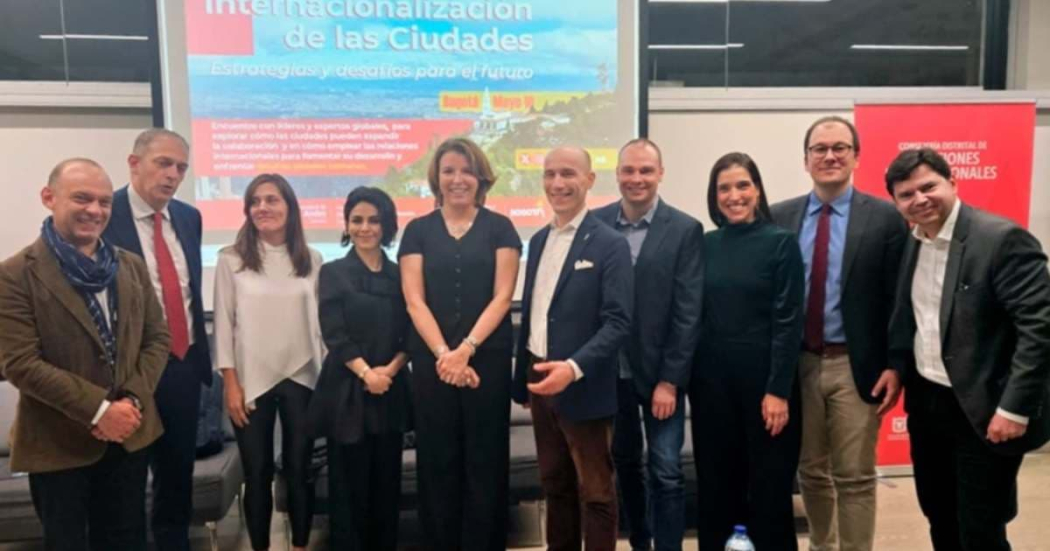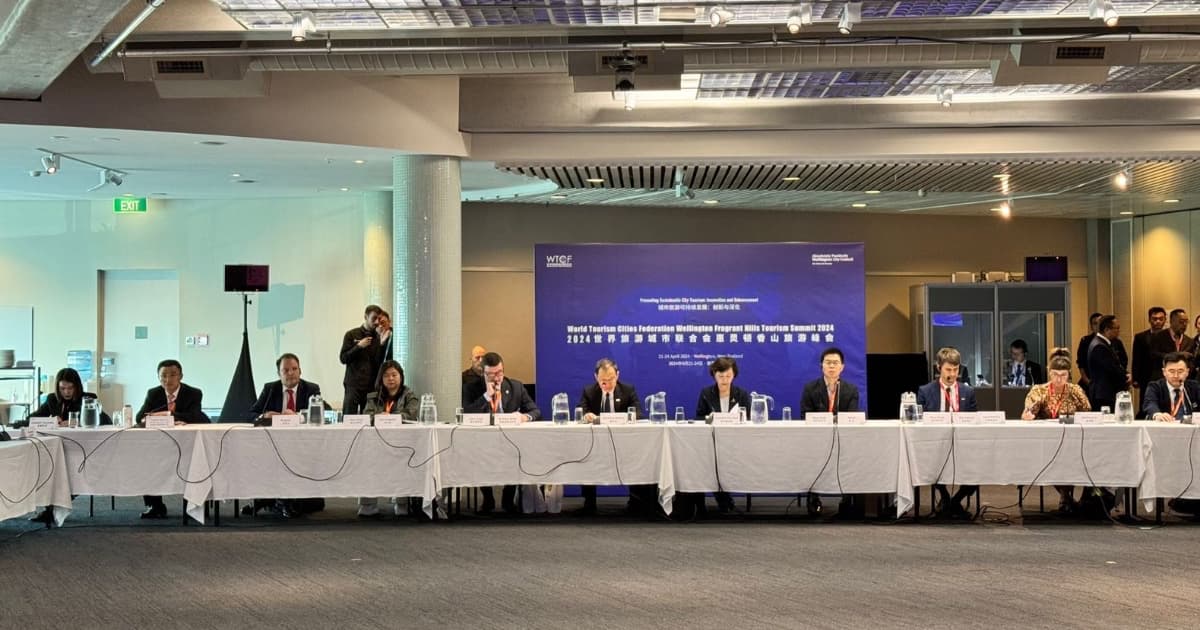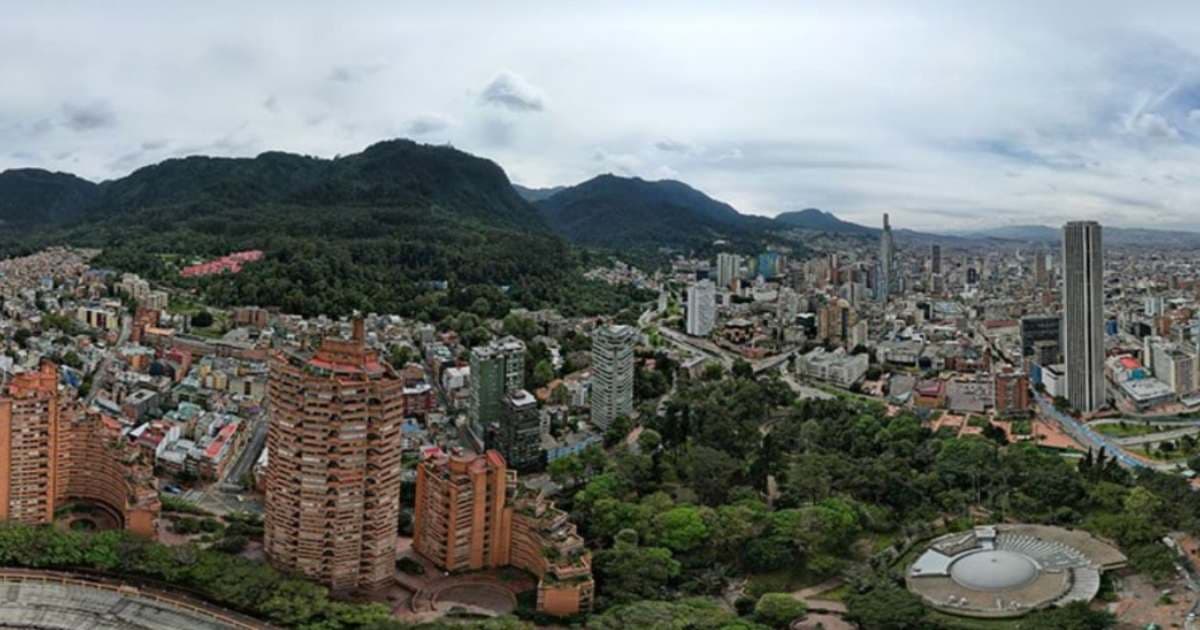Translated by Andrés Martínez Forero
On Thursday, May 16, 2024, Bogotá's International Relations Office, supported by the Department of Political Science and Global Studies at Universidad de los Andes, hosted the event ‘Internationalization of Cities: Strategies and Challenges for the Future’.
(You might want to read: Galán Pushes for Cooperation with World Bank and Multilateral Banks in the U.S.)
This forum for dialogue and exchange featured nine experts from local government international relations offices, city networks, cooperation agencies, and leading global academic and think-tank institutions.
At the event's opening, Sandra Borda, Counselor for International Relations of Bogotá, stressed the need for citizens to understand the impact of internationalization processes: "The challenge is to explain to the citizens the importance of working on the international dimension of cities, a scenario that is little understood today. It’s crucial not only to produce more knowledge from academia but also to ensure it reaches the public sector and the general public."
Below is a post from the Bogotá's International Relations Office social media X, covering this meeting:
La consejera de Relaciones Internacionales de @Bogota, @sandraborda dio la bienvenida al evento:
— Relaciones Internacionales Bogotá (@BogotaInter_nal) May 16, 2024
"Con espacios como este, buscamos que como ciudadanía, dimensionemos la importancia de la diplomacia entre ciudades como una herramienta que impacta directamente nuestro desarrollo"⬇️ pic.twitter.com/5BZRpqBHP8
The meeting unfolded in two panels, aiming to identify three key themes: advances in city internationalization, identification of emerging opportunities, and best practices.
The first panel, titled ‘What do we mean by internacionalization of cities?’, featured Ana Ciuti, Undersecretary of International Relations Office from Buenos Aires; Max Bouchet, Deputy Director at the Truman Center for National Policy; Rodrigo Perpetuo, General Secretary of ICLEI Latin America; Dr. Sohaela Amiri from the USC Center on Public Diplomacy; and Cristina Zambrano, Executive Director of ACI Medellín.
In this panel, the growing importance of urban diplomacy as a strategic collaboration and progress tool was highlighted. According to Dr. Sohaela Amiri, domestic and international policies cannot be understood separately, “collective and network problems call for collective and network solutions. Cities not only preach this but have effectively put it into practice,” she noted.
Ana Ciuti emphasized that despite significant progress in city internationalization globally, there is still much to achieve, and it is necessary to continue gaining space, "Global challenges directly impact us as citizens. Therefore, cities must open more spaces in global decision-making bodies."
(Don’t leave without reading: Bogotá Ranks Among Top Three Cities for Business Tourism in Latin America)
The successful experience of Medellín and the importance of coordinated, multisectoral work were highlighted. According to the Executive Director of the Medellín Cooperation and Investment Agency, "Internationalization has allowed us to transform our image. It has been a joint effort between academia, the private sector, and the public sector to change the negative image that existed," she pointed out.
The second panel, ‘Where are we heading with diplomacy and international city management?’, included Lorenzo Kihlgren Grandi, founder of the City Diplomacy Lab; Natalia Cote-Muñoz, Senior Advisor at the U.S. State Department for City Diplomacy; a vice-chancellor for Internationalization from Luiss Guido Carli International University in Rome; and Jordi Vaquer, General Secretary of Metropolis, participating virtually.
The accelerated urbanization process experienced over the last decades and the importance of networked work to address common problems were highlighted. "The rapid urbanization has increased the role of cities in global affairs. Many global problems are local and are very similar regardless of the country," stated U.S. State Department advisor Natalia Cote-Muñoz.
Urban diplomacy has evolved from a scenario of accessing grants or cooperation to one where cities are protagonists and engines for fulfilling global development agendas. "Mayors have become advocates for global social agendas and agents of political discourse. They see internationalization as something beyond pragmatic aid or access to international resources," highlighted the General Secretary of the city network Metropolis.
At the event's conclusion, Counselor Borda thanked the attendees and emphasized the importance of collective and participatory work to achieve internationalization processes that involve and engage the citizenry. "It is from the local level that citizen trust is recovered. Hence the importance of viewing internationalization within an identity framework, to understand and collectively build what we want to show the world and how we recognize ourselves," she pointed out.








